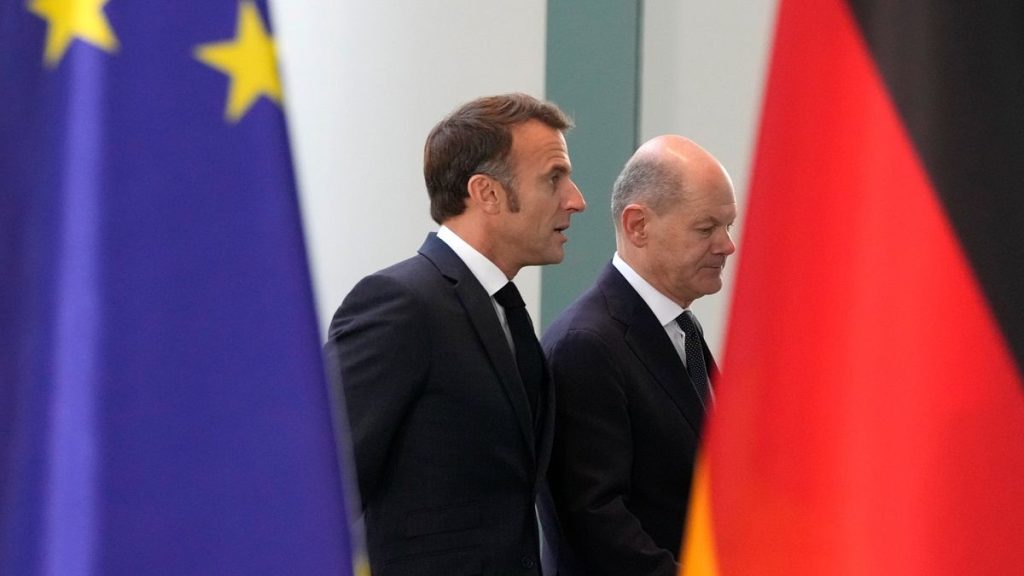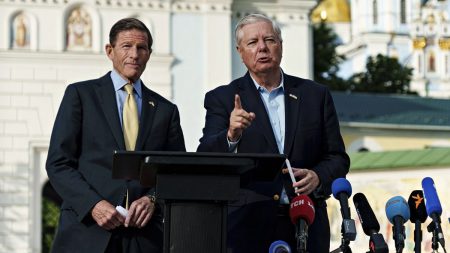The recent political turmoil in both France and Germany signals a precarious situation for the European economy, as the two nations are pivotal players in the European Union (EU). The French Parliament’s vote of no confidence in Prime Minister Michel Barnier has resulted in his brief tenure coming to an abrupt end, leaving behind a political vacuum that could greatly impede efforts to stabilize the country’s ailing finances. President Emmanuel Macron now faces immense pressure to appoint a successor while also contending with mounting calls for his resignation. The recent political discord focused on the contentious annual budget for 2025, exposing the challenges ahead for the French government as it grapples with an alarming budget deficit amounting to 6.2% of GDP – the highest in the eurozone. Barnier’s proposals, which aimed to tackle long-standing fiscal shortfalls by utilizing the maximum permitted timeframe for compliance with new EU fiscal regulations, are likely to encounter significant resistance from various factions within France’s National Assembly.
Meanwhile, Germany, the EU’s largest economy, is also experiencing its share of political upheaval, further complicating efforts to address the continent’s economic challenges. The ruling coalition government, which comprises three differing parties under Chancellor Olaf Scholz, collapsed due to disagreements over fiscal policy. The discord between Scholz, a socialist, and liberal Finance Minister Christian Lindner has led to the call for early elections to take place in February. Unfortunately, amidst this governmental instability, Berlin has failed to present a coherent plan to the EU regarding its deficit management. Despite Germany’s advocacy for strict fiscal governance in Brussels, its recent absence from discussions suggests a lack of direction that detracts from the urgency needed to propose effective solutions to the wider economic imbalances facing Europe.
The overall gloomy economic outlook for Europe is further exacerbated by deteriorating international relations, particularly with China and the looming threat of tariffs from the United States, pledged by former President Donald Trump. As the EU seeks to decrease its economic reliance on China amid escalating geopolitical tensions, the potential for increased tariffs could impose additional burdens on exporters within the bloc. This situation creates a multifaceted dilemma for national leaders, who may need to make difficult decisions about how to respond. Furthermore, with the backdrop of concerns regarding Russian aggression and an uncertain future in NATO alliances, there is an urgent need for European countries to bolster their military capabilities, which will require substantial financial investment.
As Europe’s leading economies grapple with internal disarray, the lack of cohesive leadership from both Paris and Berlin is stifling critical conversations about how to rejuvenate a sluggish economic landscape. In response to these challenges, former Italian Prime Ministers Mario Draghi and Enrico Letta have raised alarms about Europe’s declining competitiveness, emphatically noting that it has lagged significantly behind the United States. However, the propositions put forth by these leaders, which include the idea of common borrowing via euro bonds, enhancement of capital markets, and the establishment of a pan-European investment fund designed to rival U.S. green technology subsidies, face significant political hurdles. The practicality of these recommendations would require a consensual approach that entails risk-sharing among EU member states, increased financial commitments to the Brussels budget, and comprehensive reforms to pension systems.
The difficulty for national leaders in promoting such ambitious initiatives becomes especially apparent against the backdrop of weakened political support. Political factions across Europe, particularly those on the left, have voiced opposition to policies that may require sacrificing national sovereignty or financial independence, rendering it immensely challenging for any beleaguered government to champion these agendas. The perception of needing to bail out financially unstable member nations or altering robust financial regulations could provoke backlash from constituents who are wary of deepening fiscal ties with EU partners. As a result, leaders who might otherwise advocate for a more integrated and collaborative European approach are now operating under intensified scrutiny and diminished authority.
In conclusion, the political crises enveloping both France and Germany threaten to inhibit progress toward addressing critical economic issues across Europe. Without decisive and unified leadership from these two influential nations, the EU might struggle to step towards a collective solution aimed at revitalizing competitiveness and rectifying fiscal imbalances. As international pressures mount and economic uncertainties loom, the imperative for pragmatic policymaking is evident. However, the road ahead appears fraught with hurdles, as the current political climate presents a formidable barrier to achieving the necessary reforms required to secure a stable and prosperous future for Europe.










